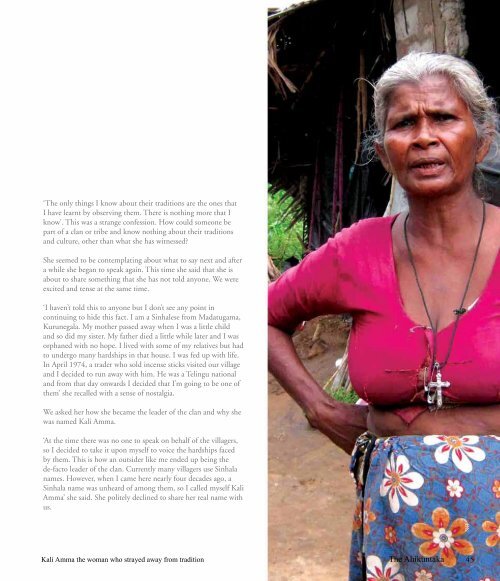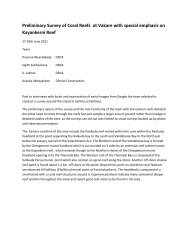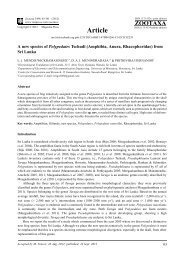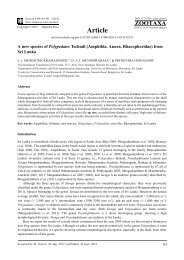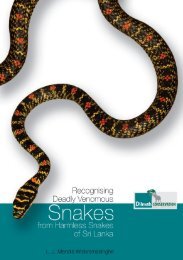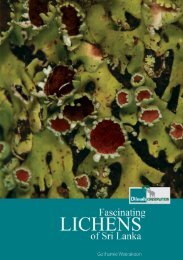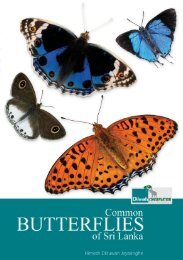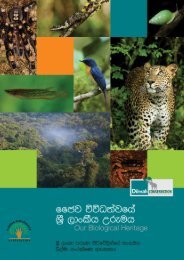The Ahikuntaka
A publication documenting the lives and livelihoods of the Ahikuntaka or gypsy community in Sri Lanka. A collection of vibrant photographs and a baseline survey on the current socio economic status of the Ahikuntaka conducted by the Colombo University complement this timely publication.
A publication documenting the lives and livelihoods of the Ahikuntaka or gypsy community in Sri Lanka. A collection of vibrant photographs and a baseline survey on the current socio economic status of the Ahikuntaka conducted by the Colombo University complement this timely publication.
Create successful ePaper yourself
Turn your PDF publications into a flip-book with our unique Google optimized e-Paper software.
‘<strong>The</strong> only things I know about their traditions are the ones that<br />
I have learnt by observing them. <strong>The</strong>re is nothing more that I<br />
know’. This was a strange confession. How could someone be<br />
part of a clan or tribe and know nothing about their traditions<br />
and culture, other than what she has witnessed?<br />
She seemed to be contemplating about what to say next and after<br />
a while she began to speak again. This time she said that she is<br />
about to share something that she has not told anyone. We were<br />
excited and tense at the same time.<br />
‘I haven’t told this to anyone but I don’t see any point in<br />
continuing to hide this fact. I am a Sinhalese from Madatugama,<br />
Kurunegala. My mother passed away when I was a little child<br />
and so did my sister. My father died a little while later and I was<br />
orphaned with no hope. I lived with some of my relatives but had<br />
to undergo many hardships in that house. I was fed up with life.<br />
In April 1974, a trader who sold incense sticks visited our village<br />
and I decided to run away with him. He was a Telingu national<br />
and from that day onwards I decided that I’m going to be one of<br />
them’ she recalled with a sense of nostalgia.<br />
We asked her how she became the leader of the clan and why she<br />
was named Kali Amma.<br />
‘At the time there was no one to speak on behalf of the villagers,<br />
so I decided to take it upon myself to voice the hardships faced<br />
by them. This is how an outsider like me ended up being the<br />
de-facto leader of the clan. Currently many villagers use Sinhala<br />
names. However, when I came here nearly four decades ago, a<br />
Sinhala name was unheard of among them, so I called myself Kali<br />
Amma’ she said. She politely declined to share her real name with<br />
us.<br />
NG<br />
Kali Amma the woman who strayed away from tradition <strong>The</strong> <strong>Ahikuntaka</strong> 45


